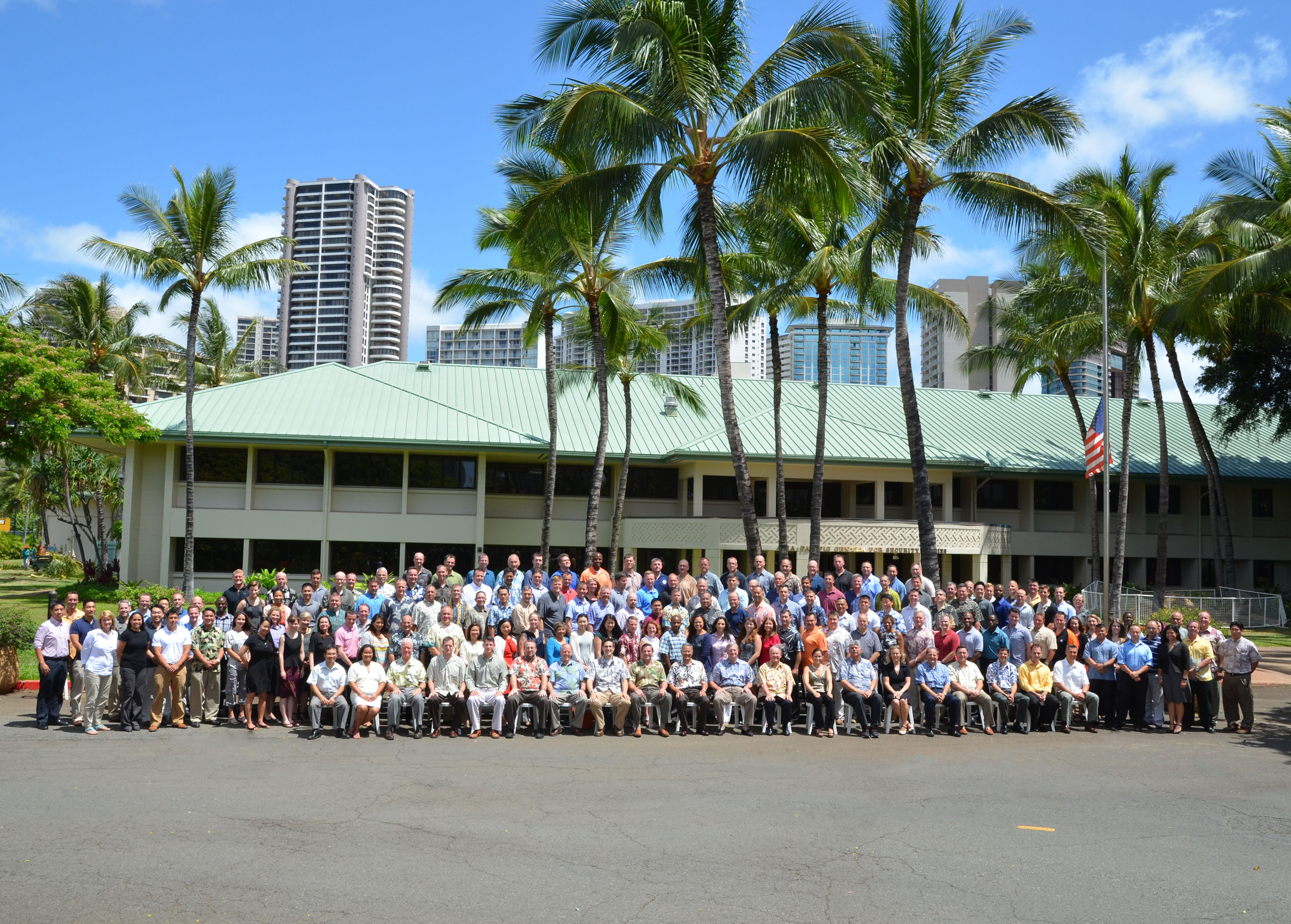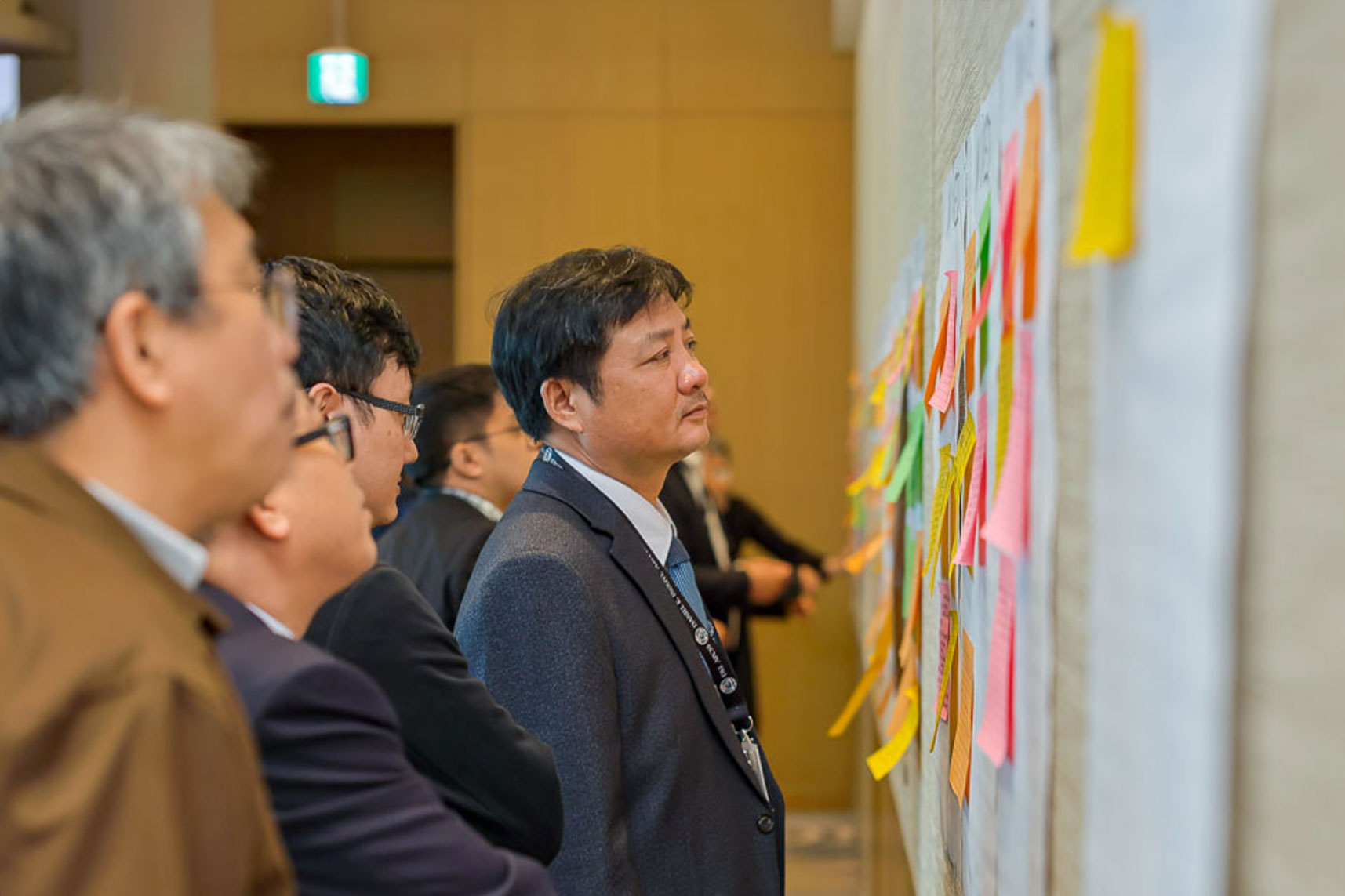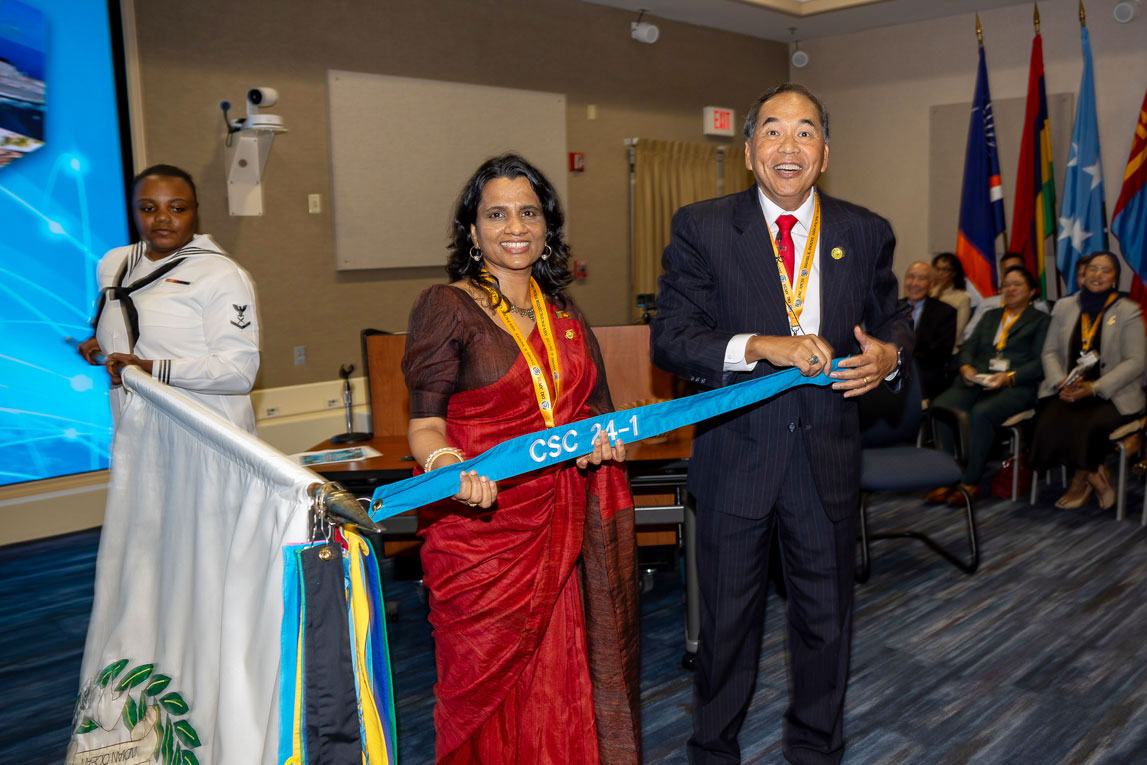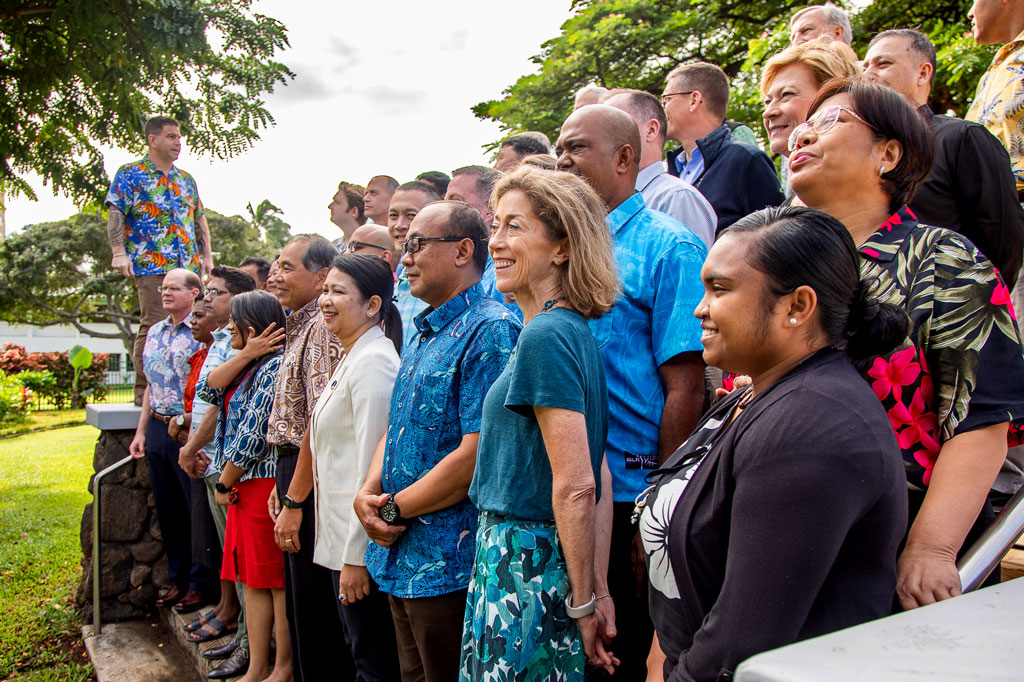One hundred American and international Fellows graduated from the Asia-Pacific Orientation Course (APOC), held November 4-8, at the Asia-Pacific Center for Security Studies. This was the third edition of this course given within the year, signifying its’ popularity amongst various on-island major component commands, civilian counterpart agencies and regional partnered nations including Australia, Brunei, Canada, Singapore and Republic of Korea.
APOC provides an overview of the Asia-Pacific region, specifically presenting the socio-economic, political, military, cultural influences, and transnational trends and dynamics shape its security environment, while also examining the increased role and impact of U.S. Rebalance efforts to the area. The instruction methodology is a balance of plenary presentations, small seminar discussion groups, “brown bag” working lunch sessions, and elective seminars.
One of the many highlights of this course for Fellows was the unprecedented number of elective seminars that were offered, allowing participants to individually tailor their experience and fields of study to topics and countries that interest them the most. All 20 elective seminars convened, with ample Fellow participation and interest. One participant remarked that they appreciated the flexibility in the curriculum to choose various elective topics, making the course more meaningful. Included in these elective seminars was a “brown bag” lunch session that was simultaneously webcasted to APCSS Alumni, “Security Implications of Recent North Korean Behavior,” given by APCSS Director, retired Lt. Gen Dan “Fig” Leaf. [See related article]
Additionally, what set this iteration of APOC apart was the relative short time frame in which the course was implemented and executed. Due to course scheduling adjustments resulting from the temporary government shutdown in October, APOC 13-3 was prepared and seamlessly conducted within a three week period, indicative of extensive staff and faculty collaboration.
Also noteworthy was how quickly the course quota was filled, given the short time frame in which to circulate notice for course availability and registration. Even with condensed notice, APOC 13-3 filled rapidly, including nine international Fellows whose participation and perspectives greatly enhanced the knowledge sharing that occurred in the seminar discussion groups. Adding greater perspective and insight for the U.S. participants of APOC 13-3 was the ability to interact with the Fellows of the concurrent but distinct joint workshop between APCSS and the New Zealand Defense Force Command and Staff College, “Regional Security and Cooperation in the Asia-Pacific.”
-End-










Leave A Comment